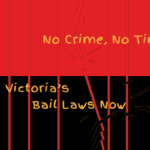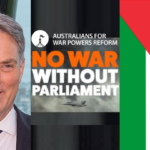Paying People to Reduce Crime

Gun violence is an enormous problem in the United States, but one US city has come up with a novel way to reduce shootings – by offering its residents cold hard cash to put their guns down.
The city of Richmond, California, is just minutes away from the trendy city of San Francisco, but it is widely regarded as one of the most dangerous cities in America due to its out-of-control gun violence.
But a new program hopes to end the high levels of violence.
Cash a Key Incentive
It is common knowledge that crime is generally associated with socio-economic hardship – so the city of Richmond sought to tackle that problem head on.
Instead of focusing on punishing gun crime after the event, the city has decided to give past offenders another chance – offering them between $300 and $1,000 each to complete school, learn parenting skills, and engage in rehabilitation as part of a program known as the Peacemaker Fellowships, which is run by the Office of Neighbourhood Safety (ONS).
And the city says it has already seen results – the following year, there were 11 less homicides, which equates to a reduction of almost 25% – and those who received the money have reportedly put it to good use, enrolling in education programs and finding employment. By 2014, the homicide rate had dropped by 76% to 13 homicides per 100,000 residents, representing a 40-year-low.
Statistics back up these claims – since the program began, 79% of participants have avoided being arrested or charged with gun crimes, while 94% of participants are still alive – a real success given the high number of gang-related murders in the city.
Much of the program’s success has been attributed to the fact that it has acted as a ‘marketing ploy,’ raising awareness about the problems associated with gun crime within the neighbourhood and showing residents that there is a way to a brighter future.
The Man With a Plan
The ONS was the brainchild of youth mentoring consultant DeVone Boggan, who was approached by the city of Richmond in 2007 after a man was fatally shot at the funeral of a teenager who had been shot dead weeks earlier.
While the city had previously tried ‘tough on crime’ tactics – which cost the taxpayer millions and yielded no results – Boggan proposed something radical: to find a way to identify those who were likely to commit these crimes and pay them to keep on the right side of the tracks.
Although he initially doubted his ability to convince the city to take on such a plan, he soon received good news– with the city agreeing to a three-year commitment – and the ONS was launched in 2007.
The program works by identifying the 50 people most likely to engage in gun violence, then approaching them people and offering a spot in the sought-after program.
Richmond Resident Stories
Perhaps the best evidence of the program’s success comes from the mouths of participants themselves.
One man, Dequan Wright, found himself on the wrong side of the tracks early on in life. At the age of 14, he was sentenced to a year in prison for firearms offences. Thankfully, the ONS intervened and put him on the path to a better future.
Since receiving a monetary grant from the Office, Wright has engaged in parenting programs for the benefit of his two young sons, and the service is also helping him achieve his dream of becoming a barber. What’s more, when tempted to drive downtown to meet a rival gang, facilitators intervened to ensure he didn’t turn his life upside down again. Wright says that if it wasn’t for this intervention, he would probably have ended up behind bars again.
Another participant, who wishes to remain anonymous, describes how the ONS helped him build better relationships with his family, and how the group was ‘committed to [him] even when [he] was not.’
Despite the program’s success, some have criticised it, saying that high-achieving students are more deserving of the money, which is donated from charities.
Yet those who support the program say that it benefits more than the individuals who participate in it – offering the community a chance to finally escape its violent reputation.






